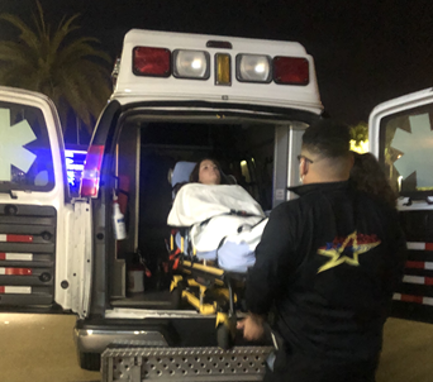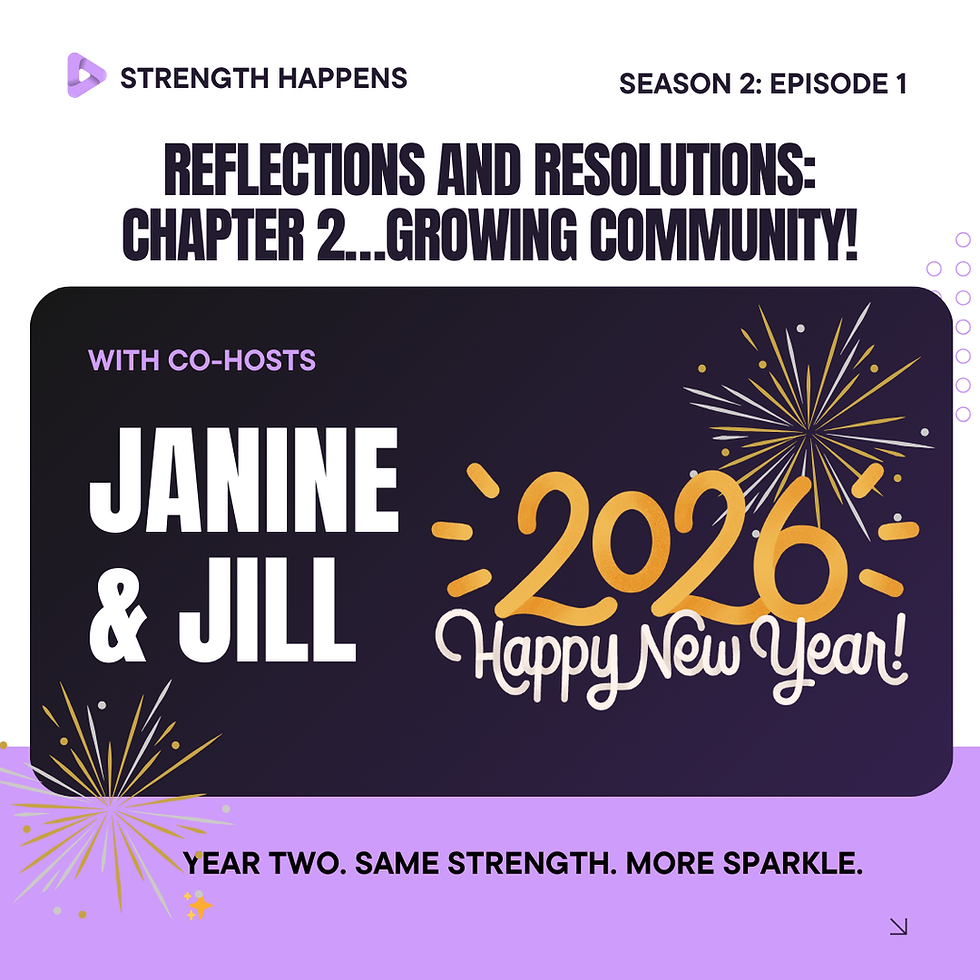10 Tips for College Students with a Chronic Illness/Disability
- Jillian Heilman
- Aug 30, 2025
- 4 min read

Hello! My name is Neeley Heilman, and I am Jill Heilman’s wonderful daughter (her words, not mine!).
College is already a scary and overwhelming time for most 18-year-olds, and for me, having a chronic illness made it even more complicated. At age 13, I was diagnosed with POTS, Ehlers-Danlos, Chiari, and Primary Immunodeficiency. Since then, I’ve tried my best not to let these diagnoses control what I can or can’t do—and I approached college with that same mindset.

I moved across the country to attend my dream school, which came with more than a few logistical hurdles. It was a crash course in learning how to take care of myself physically and mentally, while also managing classes and trying to build a social life. It wasn’t easy, but along the way, I discovered strategies that made college with a chronic illness more manageable—and even enjoyable. That’s why I’m sharing 10 tips that helped me survive (and thrive) in college while living with chronic illness.
1. Build your support system (and make sure you have more than one):

Whether you’re moving across the country or just 15 minutes away, your independence will skyrocket. Having a “village” is crucial, and finding one in your new college environment should be a priority.
Don’t rely on just one person, group, or coping mechanism. During my freshman year, I leaned heavily on my first friend group, until that friendship faded, leaving me without support. The same happened with exercise: when I got injured, I lost one of my main coping strategies. Learn from me, diversify your support system early!
2. Meet with the Student Health Center During Orientation
Amid the excitement of orientation, it’s easy to forget about medical logistics. Don’t. Find out the health center’s hours and make an appointment during orientation if you can. Getting established with a physician or care coordinator before you need them makes emergencies much less stressful.

3. Research the Best Emergency Room in your Area (Not Just the Closest):
For those of us with chronic illness, ER visits happen. Unfortunately, not all ERs are equal. I learned this the hard way after a rough experience at a local hospital. Reddit, local forums, or even upperclassmen can be great resources for figuring out which ER near your campus is best equipped (and most respectful) for your needs.
4. Connect with Accessibility Services ASAP:
This one is huge. Every university is required to provide reasonable accommodations under the ADA, but the process can take time. Get in touch with accessibility services as early as possible...ideally the summer before classes begin, so you have everything in place before challenges arise.

5. Find Friends Who Don’t Make You Feel Like a Burden:
College friendships can be complicated, especially when chronic illness is part of your life. You’ll need to prioritize sleep, rest, or health over social events sometimes and that’s okay. Surround yourself with people who respect that and never make you feel like a burden. The right friends will show empathy and understanding, and you should offer the same in return. Those are the relationships that last.
6. Communicate with Professors Early and Often:
Grab your professor’s email from the syllabus on day one. If you feel comfortable, send a short introduction explaining your situation. Keeping open communication makes the semester smoother and builds trust. If you need to miss class for health reasons, let them know promptly and kindly. Most professors are far more accommodating than you might expect.
7. Don’t Overcommit Too Early:
Club fairs are exciting, and you’ll be tempted to sign up for everything (I signed up for 15 clubs my first year). But your time and energy are limited. Start with just a few organizations that genuinely interest you and have manageable commitments. You can always add more later.

8. Use Organization Hacks to Beat Brain Fog:
Brain fog can make managing college especially tough, so organization tools are a lifesaver.
The app Notion for assignments allows you to create a tracker with columns for Class, Assignment, Due Date, and Done. Enter everything from your syllabi in the first week to stay ahead.
iPhone Reminders App for scheduling is another good tool. Every Sunday, I map out my entire week: classes, workouts, appointments, and deadlines so I don’t miss anything. Checking items off throughout the day helps keep me grounded.

9. Redefine the “College Weekend”:
Party culture is real, but it’s not the only way to have fun. If you do go out, bring your meds, have a buddy who knows your conditions, and pace yourself. If partying isn’t for you, that’s okay too! Some of my favorite non-party activities include:
Hiking
Movie nights (all seven Harry Potter movies, anyone?)
Paint-and-sip mocktail nights
PowerPoint nights with friends
Board games or puzzles
Your weekends don’t have to look like everyone else’s. Make them yours.
10. Let Go of the “Perfect College Experience”:
Movies make it seem like college is all fun, parties, and straight A’s. Reality: It’s often messy, lonely, and hard...especially with chronic illness. But it’s also a time to figure out who you are: the people you connect with, the work you want to pursue, the coping strategies that serve you best.
Your experience won’t look like anyone else’s, and that’s okay. You are not “less than” because your path is different. In fact, your resilience makes your journey uniquely powerful.
Final thought: These are my 10 tips for navigating college with chronic illness or disability. It won’t always be easy, but try to stay present and grateful for the opportunity to learn and grow. Your path may be harder than your peers, but that makes it even more meaningful.
_________________________________________________________________________
Here are a few resources my mom and Janine creating through Strength Happens. Check them out if you want a few extra supports:







Comments